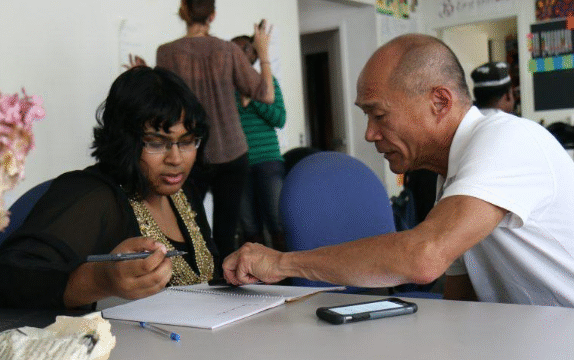Corporate Social Responsibility, often referred to as CSR,
has become a central part of how many organizations
contribute to society. While CSR can cover a wide range
of areas, education has consistently been one of the most impactful sectors where companies choose to invest. By supporting education, businesses not only give back to communities but also help build stronger, more capable workforces for the future. Understanding the role of CSR in education reveals why it is such a powerful partnership between the private sector and the public good.
At its core, CSR in education means that companies go beyond profit-making goals to contribute to learning opportunities, access to schools, skill development, and long-term academic improvement. It reflects the idea that education is not just the responsibility of governments or families but a shared effort that requires collaboration among multiple stakeholders. When businesses commit resources to educational initiatives, they often bring innovation, funding, and practical expertise that can complement existing systems.
One of the most visible ways corporations contribute to education is through infrastructure support. Many communities around the world face challenges such as inadequate classrooms, lack of libraries, or insufficient technology. Companies stepping in to build schools, renovate facilities, or provide digital tools can transform learning environments. A modern classroom equipped with computers or a safe space for children to study after school can significantly improve the quality of education. These efforts also show employees and customers that the company values the growth of future generations.
Another important dimension of CSR in education is scholarship programs. By funding scholarships, corporations open doors for students who may not have the financial means to pursue higher studies. These opportunities can change the trajectory of a student’s life and also create long-lasting goodwill for the company. Scholarships are often designed to focus on specific areas, such as science, technology, or leadership, which helps students prepare for future careers in industries that align with the company’s mission. In this way, the support becomes mutually beneficial, as society gains skilled individuals while companies gain a better-prepared workforce.
Skill development initiatives are another area where CSR in education makes a meaningful impact. Many companies now recognize the importance of bridging the gap between what schools teach and what the job market requires. By offering workshops, training programs, or internship opportunities, corporations help students gain practical knowledge that complements their academic studies. For example, a technology company might run coding boot camps, while a manufacturing company might provide apprenticeships. These programs not only enhance employability but also instill confidence in young learners.
Corporate partnerships with schools and universities also open the door to collaborative innovation. Businesses can provide expertise that educators may not have, especially in emerging fields such as artificial intelligence, renewable energy, or financial literacy. When experts from the corporate world share their knowledge with students, the learning process becomes more relevant to real-world applications. These collaborations can also lead to research opportunities, where students and professionals work together to develop solutions for pressing global challenges.
Community engagement is another important aspect of CSR in education. Companies often organize volunteer programs where employees dedicate time to mentor students, teach classes, or participate in school improvement projects. Such involvement creates stronger community bonds and helps students connect with role models outside their immediate environment. When children see professionals investing their time and care in their education, it fosters motivation and a sense of belonging. This personal connection can be as valuable as financial contributions.
In addition to direct educational support, companies also contribute by promoting inclusivity and access. CSR initiatives often target groups that are underrepresented or face barriers to education, such as girls in rural areas, children with disabilities, or communities affected by poverty. By providing targeted assistance, corporations help ensure that education is not just available but accessible to all. These efforts reinforce the principle that every child deserves a fair chance to learn and succeed, regardless of their background.
An often-overlooked part of CSR in education is the role of technology. As digital learning becomes more central, many companies are donating software, providing internet access, or training teachers in new digital tools. These actions have become especially important as more education shifts online. By reducing the digital divide, businesses enable more students to benefit from online resources, interactive lessons, and global connections. This investment not only modernizes education but also prepares students for a world where digital skills are essential.
From a corporate perspective, investing in education through CSR has long-term advantages. A better-educated population leads to stronger economies, more innovation, and healthier societies. These outcomes ultimately benefit businesses as well, since a skilled workforce and stable communities create a positive environment for growth. Furthermore, CSR initiatives in education improve brand reputation and strengthen trust between a company and its stakeholders. Customers and investors increasingly prefer to support organizations that demonstrate a genuine commitment to social good.
Of course, successful CSR in education requires thoughtful planning. It is important for companies to align their initiatives with the needs of the community rather than imposing solutions. Collaboration with schools, teachers, and local leaders ensures that projects are relevant and sustainable. Monitoring and evaluating outcomes also help companies measure their impact and continuously improve their programs. When businesses approach CSR in education with humility and a focus on long-term change, they can make a real difference.
The future of CSR in education is likely to grow even stronger as global challenges highlight the importance of knowledge and skills. With rapid technological changes, climate concerns, and shifts in the job market, education must adapt quickly. Companies have the resources and expertise to help schools meet these challenges. By investing in research, innovation, and inclusive opportunities, businesses can contribute to building a generation that is resilient, adaptable, and prepared for the future.
In conclusion, corporate social responsibility in education represents more than charitable giving. It is a partnership that combines the strengths of businesses with the aspirations of students and educators. Through scholarships, infrastructure, skill development, inclusivity, and technology, corporations can play a vital role in shaping brighter futures. When companies recognize that their success is tied to the growth of society, their contributions to education become a natural extension of their mission. CSR in education is not just about building schools or funding programs; it is about empowering individuals and communities to reach their potential, ensuring that the benefits extend across generations.






